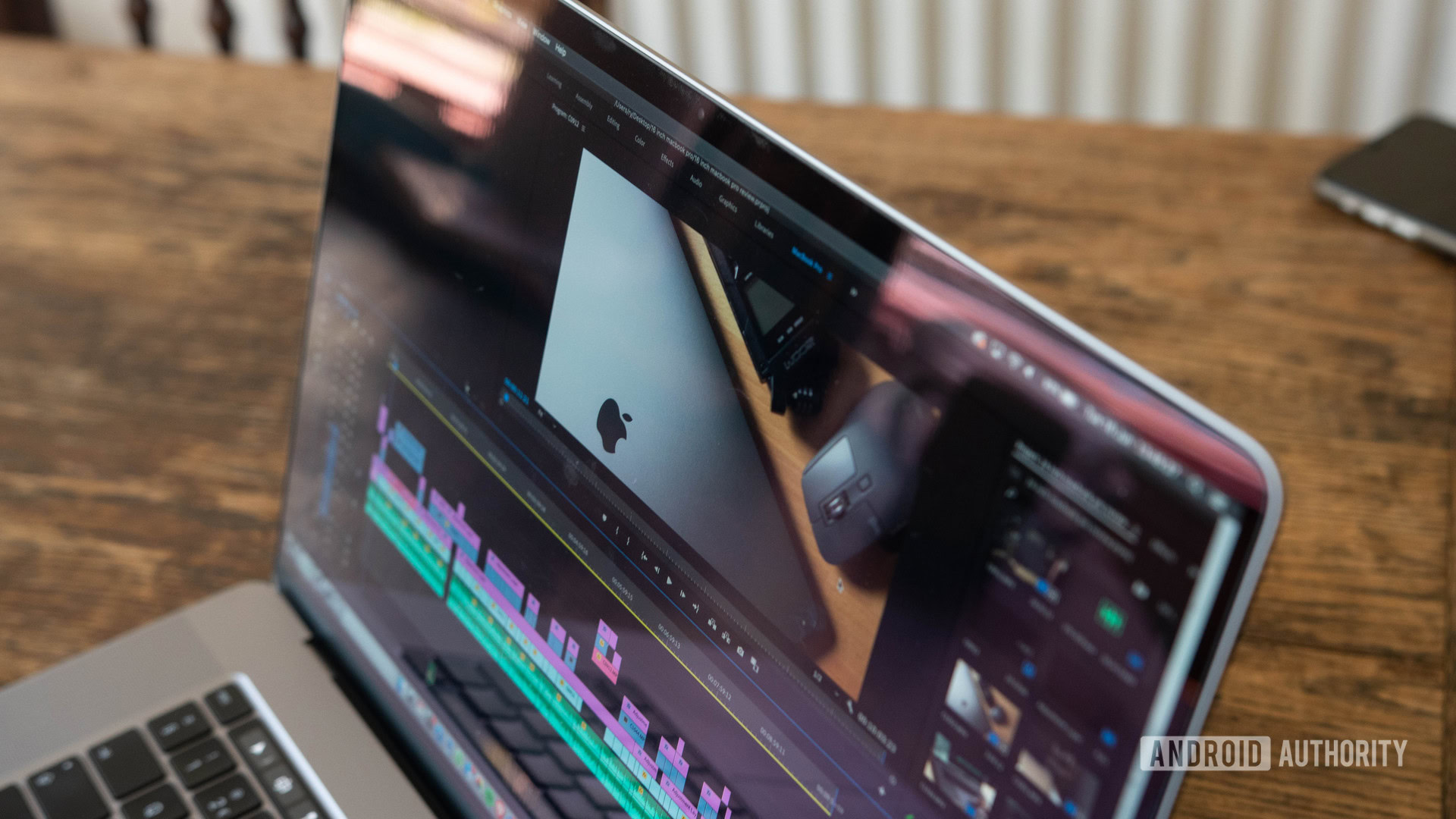Affiliate links on Android Authority may earn us a commission. Learn more.
How to become a video editor online
Video editing is a fun, profitable, and popular skill that anyone can learn. This post will show you how to become a video editor, how to find online clients to earn a living, or how to just make some cash on the side!
Why become an online video editor?
So, why should you be interested in becoming a video editor? To use video-game parlance for a moment, video editing offers a low “skill floor” and a high “skill ceiling.” This means that it’s very easy to pick up the basics of video editing (just trim and arrange a few video files), but there is a lot to learn as you become more advanced.
See also: What is the gig economy? Why the future of work is online (and how to prepare)
This means that anyone can start selling their services as a freelance video editor with relatively little training. Yet, over time, this is a craft that you can hone and take a lot of pride in, allowing you to land higher-paid work.
Anyone can start selling their services as a freelance video editor with relatively little training.
The fact that editing is a service you can provide from home also makes this extra appealing, especially in the current climate.
Why companies need video editors
Video editing is in high demand. The web is an extremely visual platform, and video marketing is one of the most powerful options for brands that want to get their message across. You’ll see a lot of banner adverts as you browse the web, but most of these will make hardly any impact: you probably just dismiss them and move on! A video, on the other hand, is far more engaging.

Businesses use video ads on platforms like YouTube to convey a message and persuade their audiences. Many organizations also now have their own YouTube channels that they use to provide information and entertainment to their customers. This allows them to build trust and authority over time. Videos are also used on company homepages to explain products and services.
Then there are the countless other uses for professionally-made video:
- In-house training videos for staff
- Promotional videos for investors
- Video advertisements for traditional media
- Informational videos for customers
- Instructions for purchased products
And the list goes on. There is no shortage of work once you know how to become a video editor. As more businesses take their operations online, the market is only likely to grow.
How to become a video editor
Becoming a video editor is as simple as acquiring the right skills, software, and hardware.
Most video editors will use either Adobe Premiere Pro or Final Cut Pro X for the majority of their work. These are professional, paid software packages. However, you should find that this is an investment that pays for itself in short order.

Those looking to provide more basic services may find that they can make do with more affordable options. Adobe Premiere Elements is a simpler, cheaper alternative to Premiere Pro. Much cheaper options, such as Corel VideoStudio Ultimate do exist, but these are only appropriate for more basic gigs.
More tools and hardware for video editors
There are many other tools that may prove useful to learn. These include Adobe After Effects, which can be used to apply more advanced effects and animations.
Another tip is to consider signing up for a stock video site such as Shutterstock or Envato Elements. These sites give you access to a vast range of videos, fonts, music tracks, effects, templates, and more that you can use in your own projects. This is an easy way to offer more premium production values without a lot of extra work on your part.
Stock video websites are an easy way to offer more premium production values without a lot of extra work.
You also need the hardware to back up your software. Video editing is taxing on computers, so it’s worth investing in a machine with a decent CPU and GPU, plenty of RAM, lots of storage, and a monitor with great color accuracy.
Pricing
Often, fees will be calculated “per-minute.” You can find guides to the “average” fee that editors shoulder charge on this basis, but these can be somewhat arbitrary at best. Don’t put too much stock in them. It’s important to recognize how much any two videos can vary. If you’re simply putting a few clips in order, then this will be much quicker than a highly edited action scene. This should be reflected in the price.
Video editors can charge anything from a few dollars to a few thousand dollars per minute.
In reality, video editors can charge anything from a few dollars to a few thousand dollars per minute. You need to honestly appraise your own level of expertise and how much you need to charge to stay in profit. Start lower and aim to work your way up the ladder.
How to learn video editing
Once you’ve decided which editing software you’re going to use, the next step is to learn the ropes. Learning how to become a video editor is relatively simple: just find a course that will teach you the desired software.

For example, The Adobe Premiere Pro CC Video & Audio Production Course Bundle is a great starting point for those that want to use Adobe’s tools. The good news is that Android Authority readers can get this course for just $29.99 if they act now (usual RRP: $1,194).
If you’re a Mac user, you may prefer to learn Final Cut Pro X. In that case, The Complete Final Cut Pro X Course – Beginner to Intermediate is a great place to start. Android Authority readers get a 92% discount, bringing the price down to $14.99.
See also: Adobe Certification is a great career move for creative professionals
Some top editing tips
There’s a difference between knowing how to edit and knowing how to edit well. We recommend watching YouTube tutorials and reading through articles to get an idea of what works.
In the meantime, here are just a few tips that can help you to make your editing stand out:
- Good editing should be invisible. Aim to make transitions as un-jarring as possible. One trick to this end is to cut on action. Cut during movement, rather than between static shots.
- When cutting between shots of an object or scene, try not to switch sides entirely.
- Choose the music track (if you are using one) before you begin editing.
- Don’t overdo filters and effects.
- Use LUTs to quickly apply filmic color-grading.
- Understand the goals of the client and try to match them.
- Be intentional with your choices. If you cut from a wide-angle shot to a close-up, what is the purpose of doing that? (This is often a good way to establish a scene, for instance).
- You can usually get away with cutting a little bit more than you think. Presenters, in particular, look more professional when you remove long silences between sentences!
- Wherever possible, don’t cut between two shots from the same angle. If you must, then try pushing in slightly (zoom the image to 110%) to cover your tracks.
There are many more tips like this out there that can teach you how to become a video editor with more professional quality. You’ll also learn as you go and develop your own style.
How to land jobs
However, there’s more to how to become a video editor than simply knowing how to edit… if you want to get paid that is!
See also: Stuck at home? Top 9 freelance sites for finding paid work online
Knowing how to market yourself and knowing where to find work is just as important. Fortunately, there are a number of platforms that make it relatively easy for editors to post ads and find clients. These are known as “freelancing platforms.” One of the most popular is UpWork. Other options include TopTal, Freelancer, and PeoplePerHour. LinkedIn is surprisingly useful too.
A bit like dating sites, you get what you put in out of these freelancing platforms. That’s my way of saying that it can initially be hard work to land jobs.
Fiverr for video editors
Surprisingly, Fiverr is actually one of the best online marketplaces for creative professionals. While Fiverr began as something of a novelty, it has grown over the years, and it now offers a serious marketplace for creative professionals through Fiverr Pro.
See also: How to make money on Fiverr as a creative professional
Fiverr also gives you the option to monetize your editing skills in other ways, by offering “productized” services for example. Many editors will create designs for video openers and bottom thirds and then charge a fee for clients to add their logos.
At the very least, this way you can choose to define the parameters of your work: “I will create a 3-minute advert for X amount of money.”
Other places to find editing work online
If you are looking for faster ways to become a video editor, then you can also try reaching out to companies directly to offer your services. You can even create your own online brand and market yourself that way. For example, you could start your own YouTube channel teaching other people how to become a video editor and promote yourself from there! Alternatively, create an Instagram account with short videos and promote yourself in the descriptions/your bio.

Finding a video editing agency is also a great option if you don’t mind surrendering some control over the type of work you do (and a cut of the profit). Just search for video editing agencies and get in touch.
Of course, you don’t have to go freelance! There is nothing wrong with gaining the skills and then simply finding a traditional employer. As well as editing companies, you’ll also find that marketing agencies and even big corporations often have vacancies for video editors.
Standing out from the crowd
Qualifications and certifications can certainly help and provide a boost for your resume, however, they are by no-means a requirement. If you do decide to go this route, then a great place to start is with Adobe certification.
Wherever you decide to market yourself, it’s a good idea to have some kind of platform or portal where you can demonstrate your skills. Having a portfolio of your work will speak volumes and ultimately have a bigger impact than any qualifications or experience.
Make awesome stuff and, eventually, people will pay you for it.
Make awesome stuff and, eventually, people will pay you for it. And that is how to become a video editor online!